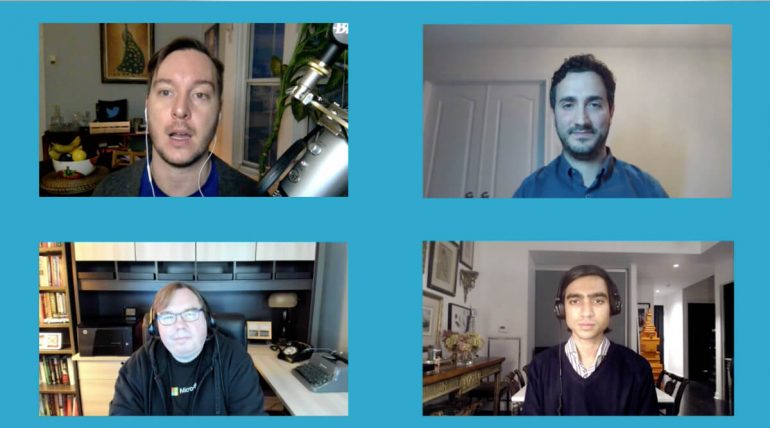As the COVID-19 pandemic continues, conversations tend to focus on job losses and skyrocketing unemployment. While it’s true that, at the start of the pandemic, Canada reached levels of unemployment not seen for decades, some industries are in desperate need of talent.
Cybersecurity is one of those industries, with an estimated 3.5 million job openings to fill globally by 2021. The problem for Canada is that only a small handful of the world’s top cybersecurity firms are Canadian. But that doesn’t mean Canada has to lose out on this massive opportunity.
In a recent BetaKit Live, Kevin Magee, Chief Security and Compliance Officer at Microsoft Canada; Christopher Salvatore, Manager of Accelerator Programs, Rogers Cybersecure Catalyst at Ryerson University; and Tahseen Shabab, Co-founder & CEO at Penfield.AI, discussed how Canada can build a thriving cybersecurity ecosystem – and why that ecosystem needs community to grow.
“You’re giving me a master’s thesis, I need something like a tweet.”
-Kevin Magee,
Microsoft Canada
Despite being a highly technical field, Magee said the “challenges haven’t really changed” when it comes to building a cybersecurity ecosystem. In Canada specifically, those challenges include founders selling startups too early or building what ultimately becomes a feature of someone else’s product rather than a world-changing company in its own right. But this isn’t entirely the fault of the founders; there are structural issues underlying these outcomes.
Each panellist agreed that the key to solving those structural issues is building a cybersecurity ecosystem that connects all parties: startups, enterprises, governments, and accelerator programs. Shahbab said that “cybersecurity professionals have been working in the shadows for a long time,” and are not as tightly connected to peer groups, or enterprises as startups in other industries, like FinTech, might be.
Fuelling that disconnect is the language barrier caused by the highly-technical world of cybersecurity. The in-depth research it’s based upon can be difficult to explain, and many cyber innovators lack experience in contextualizing their innovations to outsiders. When you don’t know the lingo, it can be hard to connect.
That communication barrier can also limit a company’s ability to find partners or customers. Magee shared that, in his capacity at Microsoft and as a mentor to startups, he’s seen numerous cyber innovators with amazing products. However, they don’t know how to pitch themselves properly and thus had a harder time selling.
“You’re giving me a master’s thesis, I need something like a tweet,” said Magee.
This is where community is critical, Magee said. When entrepreneurs can connect with and receive mentorship from enterprises, they better understand how to frame their research in the context of customer needs. It’s an opportunity for not only sales prospecting but also learning from one another.
Facilitating those introductions and connections is not an easy feat, however. This is where programs like the Rogers Cybersecure Catalyst accelerator can play a role, said Salvatore. The accelerator, produced through a partnership between Rogers and Ryerson University, serves as a connection point between entrepreneurs, enterprises, and innovators. Salvatore said the Rogers Cybersecure Catalyst is poised to help 60 cybersecurity startups over the next four years.
Salvatore also said that one critical element of growth is focusing on inspiring entrepreneur stories that can draw all kinds of people into the ecosystem. Sharing an entrepreneur’s vision for a safer world can drive interest in the specific problem that startup is tackling, and hopefully advocacy.
It was a point supported by Magee, who reminded the panel and the audience of the true goal behind a strong cybersecurity ecosystem.
“We’re in this to defend people,” said Magee. “From the bad guys, from cybercriminals, from nation-state actors that would do us direct harm or indirect harm.”


